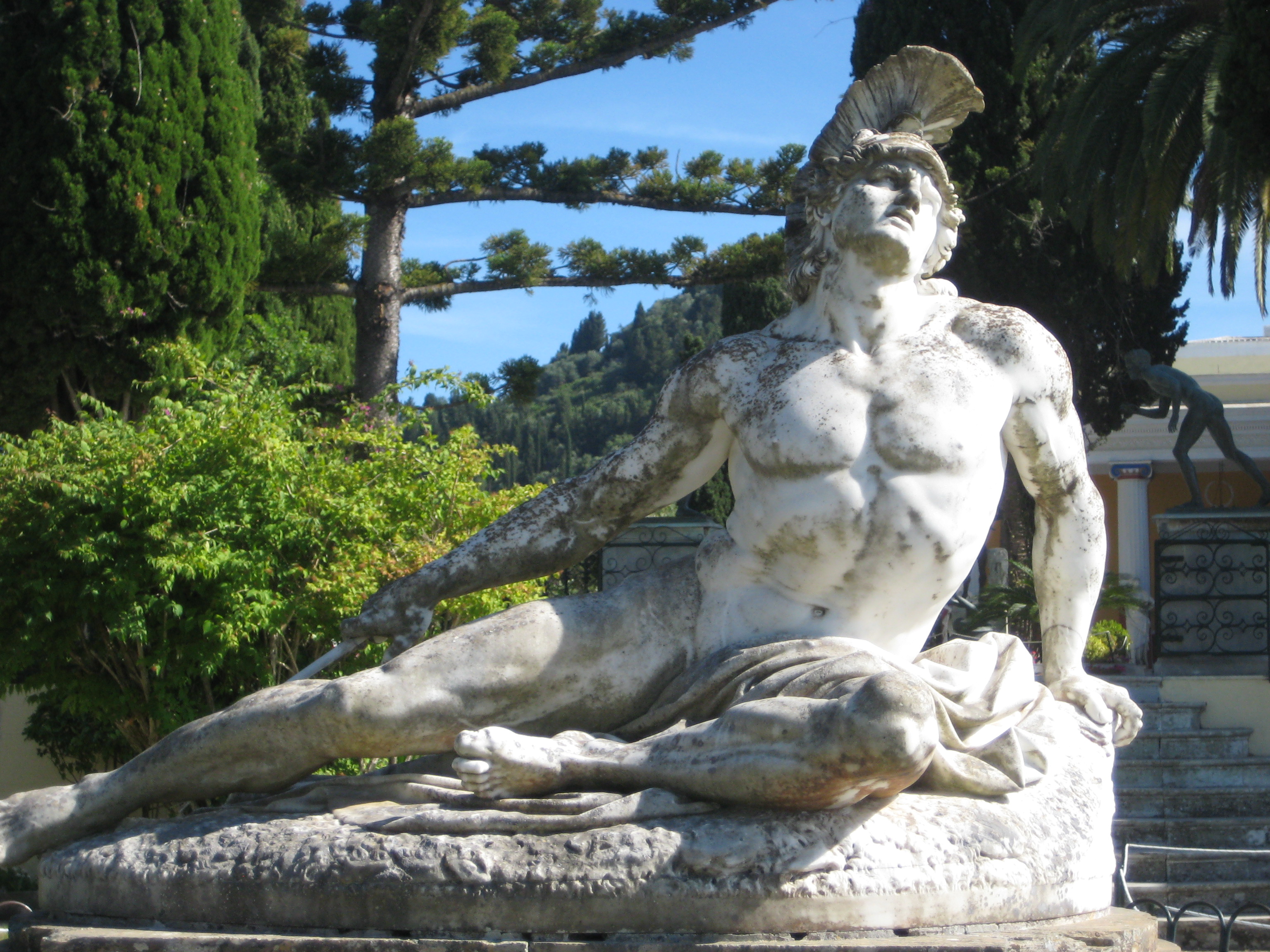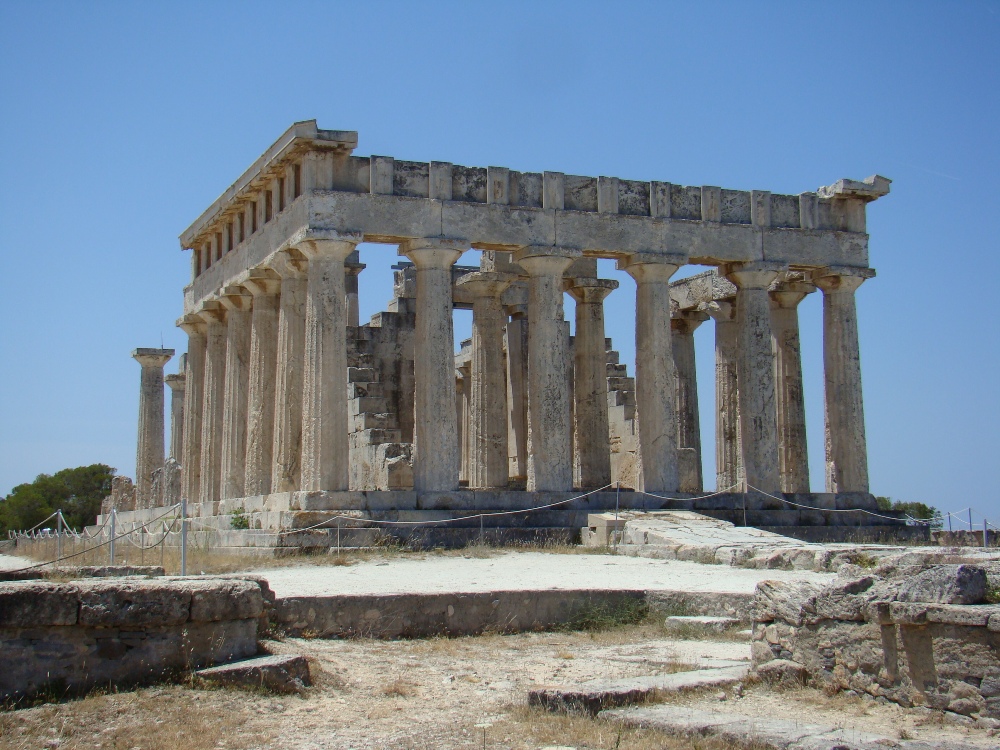Given the insanity around us, it seems only appropriate to escape to the late 8th century BCE. Why not? The following is an excerpt from Voice of a Voyage: Rediscovering the World During a Ten-year Circumnavigation. Take a look especially at the last two paragraphs: the real skinny on the start of the Trojan War, with a caveat for today.

A reproduction of an early Greek statue.
“I re-read The Odyssey as we traveled Odysseus’s “wine-dark seas.” Helen, Paris, the Trojan Horse, Odysseus, The Iliad and The Odyssey—are all well known. But not so widely remembered is that Odysseus didn’t even want to go. His home was Ithaca. When summoned, he feigned madness plowing his fields erratically and sowing salt, not seed. Palamedes, who had come to fetch him, was as cunning as Odysseus and put young Telemachus in front of the plow. Odysseus swerved to avoid his young son, and thus the king of Ithaca became part of the army to avenge Helen, but against his wishes. He may have had a premonition of what was in store for him.”
“But how did it all start? I don’t mean Helen’s affair with Paris, the gods’ interference, and the pledge that forced the Achaean chiefs to go with King Menelaus to win her back—but before that.”
“Zeus was the god, unrivaled among the assembly of Greek gods and goddesses—the almighty in the Greek pantheon. There’s no question about that. When someone—be it god, goddess, human, or other entity—had a major complaint, they went straight to Zeus. Earth had a major complaint, so Earth went to Zeus and explained that mankind was too numerous and arrogant and asked Zeus to do something about them. Zeus came up with war—the Trojan War.”
Might we not be too numerous and arrogant again?

The Temple of Aphaia dedicated to the goddess Athena.